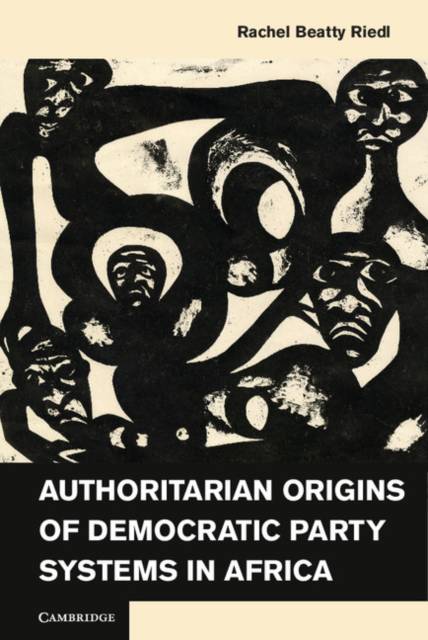
Door een staking bij bpost kan je online bestelling op dit moment iets langer onderweg zijn dan voorzien. Dringend iets nodig? Onze winkels ontvangen jou met open armen!
- Afhalen na 1 uur in een winkel met voorraad
- Gratis thuislevering in België vanaf € 30
- Ruim aanbod met 7 miljoen producten
Door een staking bij bpost kan je online bestelling op dit moment iets langer onderweg zijn dan voorzien. Dringend iets nodig? Onze winkels ontvangen jou met open armen!
- Afhalen na 1 uur in een winkel met voorraad
- Gratis thuislevering in België vanaf € 30
- Ruim aanbod met 7 miljoen producten
Zoeken
€ 194,95
+ 389 punten
Uitvoering
Omschrijving
Why have seemingly similar African countries developed very different forms of democratic party systems? Despite virtually ubiquitous conditions that are assumed to be challenging to democracy - low levels of economic development, high ethnic heterogeneity, and weak state capacity - nearly two dozen African countries have maintained democratic competition since the early 1990s. Yet the forms of party system competition vary greatly: from highly stable, nationally organized, well-institutionalized party systems to incredibly volatile, particularistic parties in systems with low institutionalization. To explain their divergent development, Rachel Beatty Riedl points to earlier authoritarian strategies to consolidate support and maintain power. The initial stages of democratic opening provides an opportunity for authoritarian incumbents to attempt to shape the rules of the new multiparty system in their own interests, but their power to do so depends on the extent of local support built up over time. The particular form of the party system that emerges from the democratic transition is sustained over time through isomorphic competitive pressures embodied in the new rules of the game, the forms of party organization and the competitive strategies that shape party and voter behavior alike.
Specificaties
Betrokkenen
- Auteur(s):
- Uitgeverij:
Inhoud
- Aantal bladzijden:
- 286
- Taal:
- Engels
Eigenschappen
- Productcode (EAN):
- 9781107045040
- Verschijningsdatum:
- 13/02/2014
- Uitvoering:
- Hardcover
- Formaat:
- Genaaid
- Afmetingen:
- 152 mm x 229 mm
- Gewicht:
- 589 g

Alleen bij Standaard Boekhandel
+ 389 punten op je klantenkaart van Standaard Boekhandel
Beoordelingen
We publiceren alleen reviews die voldoen aan de voorwaarden voor reviews. Bekijk onze voorwaarden voor reviews.











